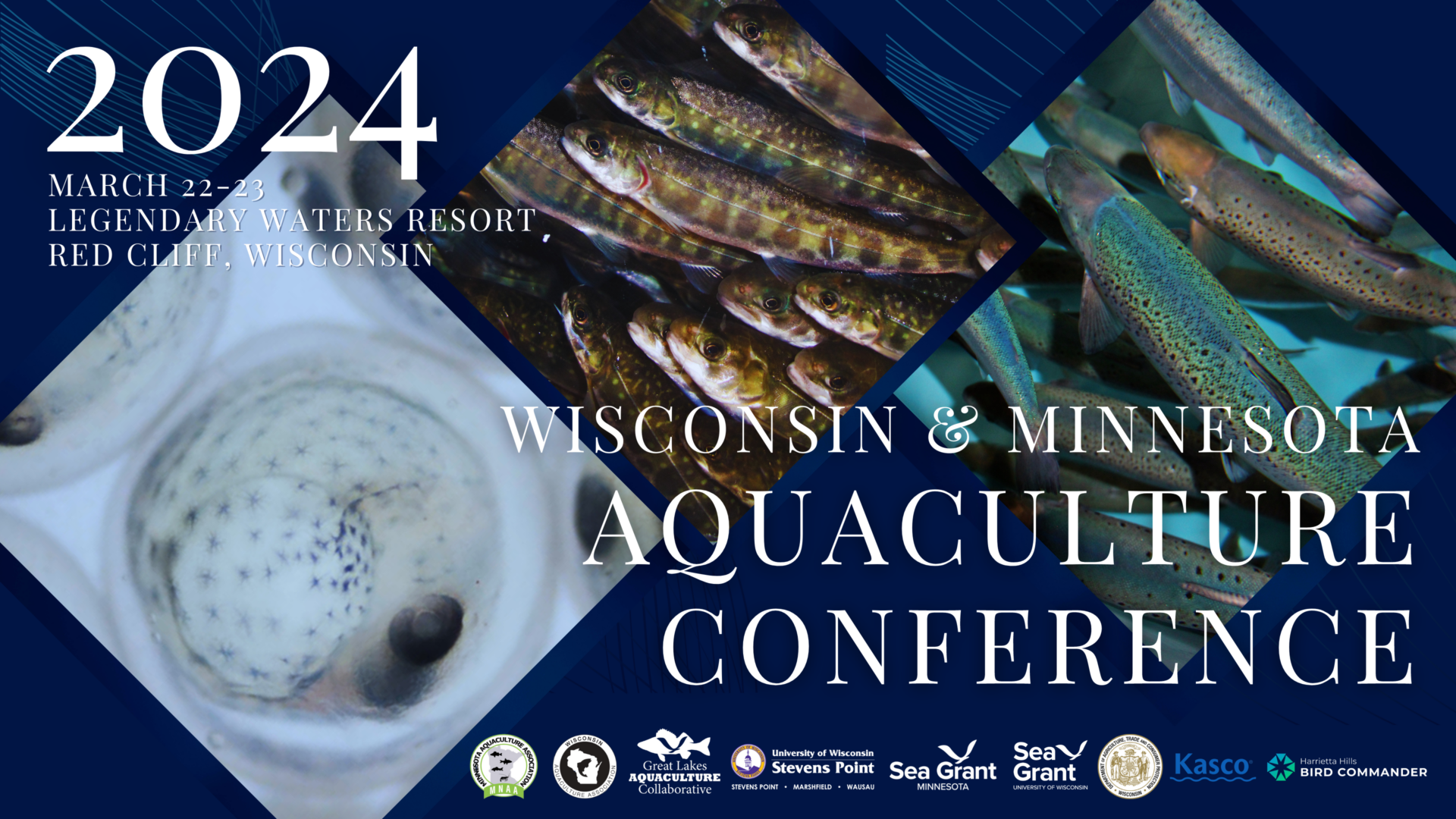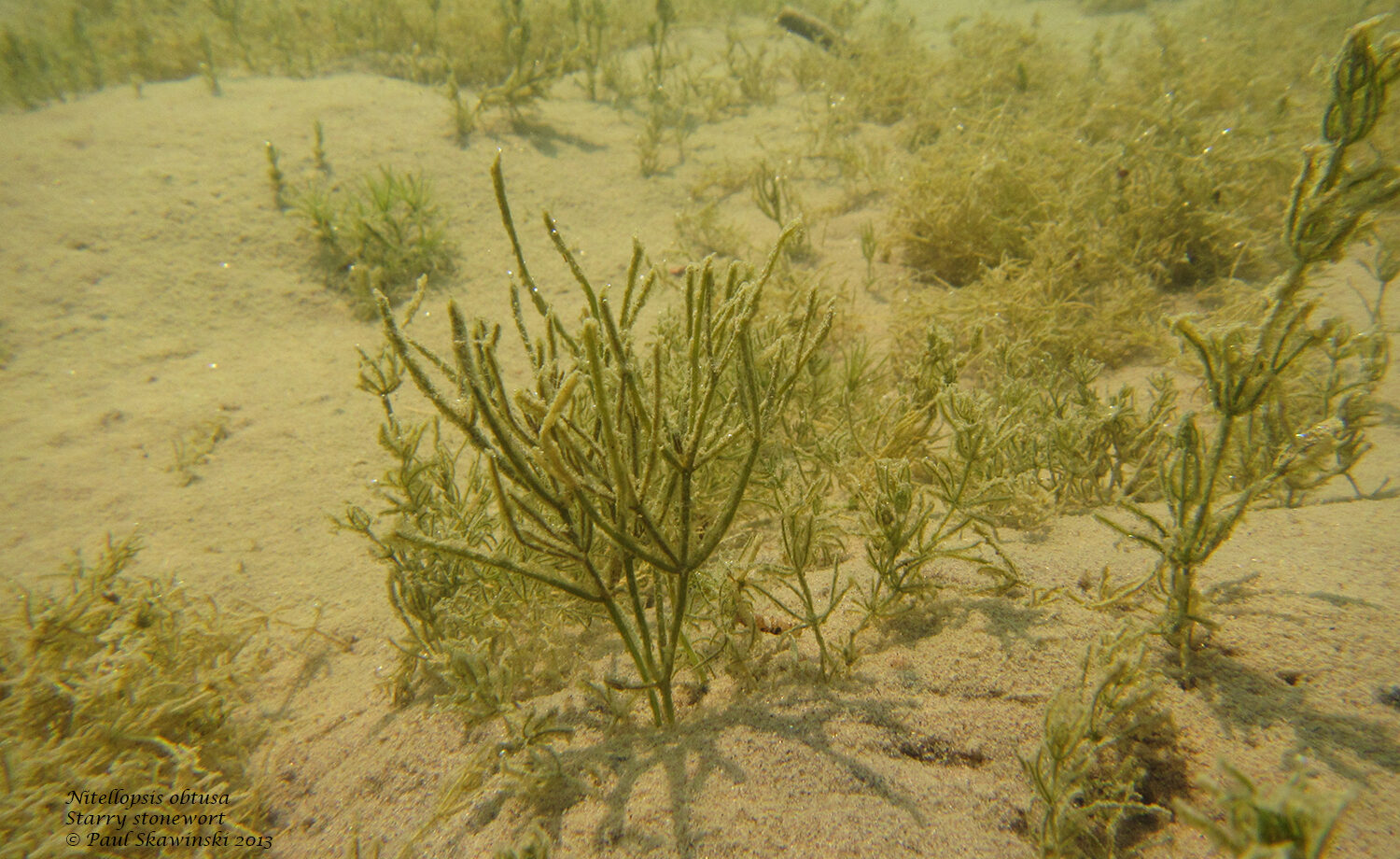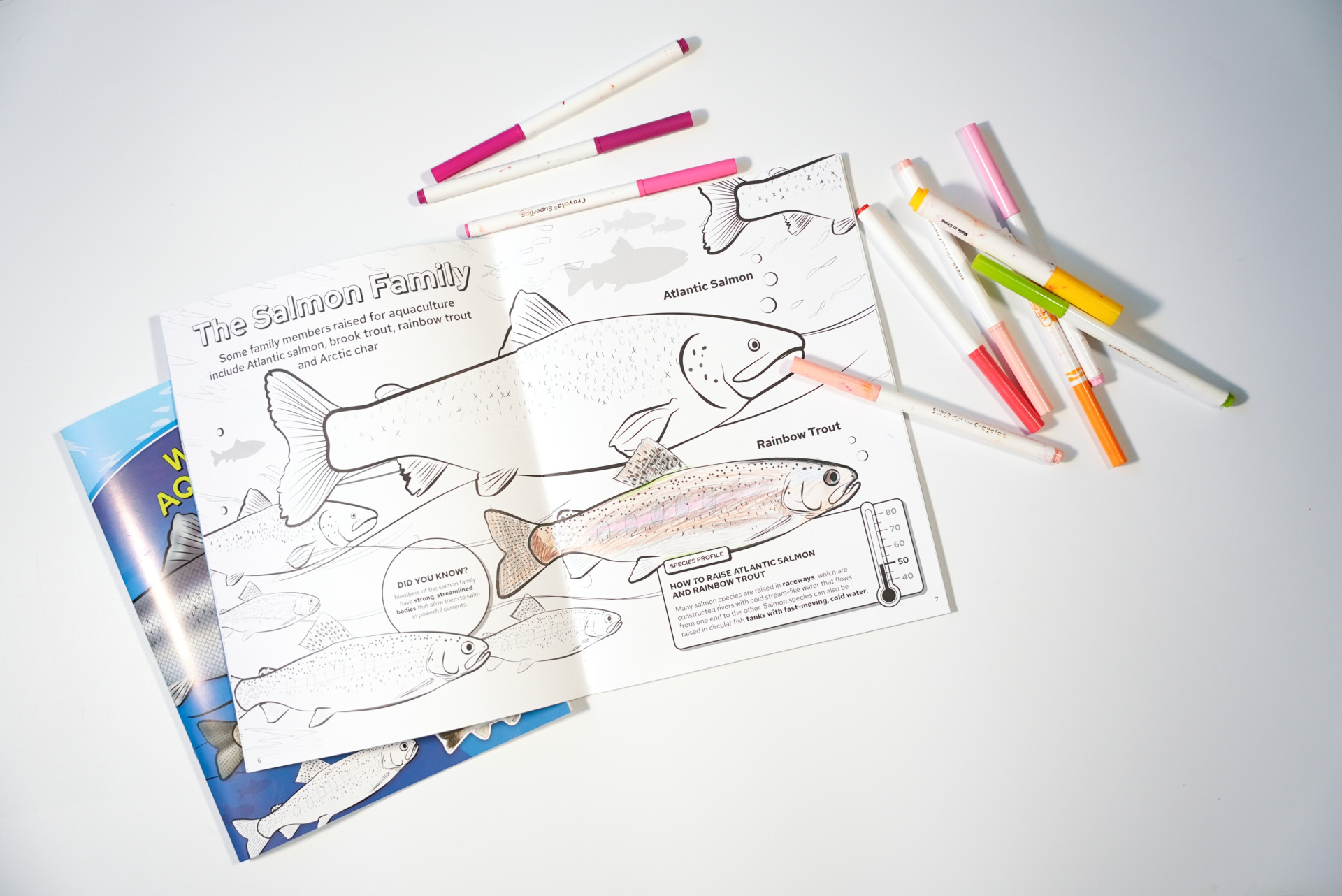
The largest aquaculture event in the upper Midwest, the Wisconsin & Minnesota Aquaculture Conference, will be held March 22–23 at the Legendary Waters Resort and Casino in Red Cliff, Wisconsin.
This year’s conference is being hosted and organized by the University of Wisconsin-Stevens Point Northern Aquaculture Demonstration Facility (UWSP NADF) and Wisconsin Sea Grant. The conference will feature more than 40 presenters from industry, state, federal and tribal facilities discussing current research and best management practices. Attendees will also have the opportunity to tour one of four local facilities: the Red Cliff Tribal Hatchery, Red Cliff Fish Company, Bodin Fisheries’ processing facility and the University of Wisconsin-Stevens Point Northern Aquaculture Demonstration Facility.
Presentation topics are wide ranging and cover subjects such as water quality management, the economics of aquaculture, workforce development, fish health and how to bring aquaculture into the classroom. The event will also feature a trade show, silent auction, cooking demonstrations and student poster competition.
Attendees interested in learning more about recirculating aquaculture systems (RAS) can sign up for a half-day workshop on March 23 at the UWSP NADF facility.
“This conference brings together such an amazing group of experts across our region, including representatives from state, federal, tribal and private industries and organizations,” said Emma Hauser, aquaculture outreach specialist with UWSP NADF and Wisconsin Sea Grant. “The most exciting aspect of this event is that it supports important networking opportunities, critical for building relationships within the aquaculture industry.”
Hauser will participate in a panel discussion with Dong-Fang Deng, aquaculture outreach and extension specialist with Wisconsin Sea Grant and the University of Wisconsin-Milwaukee School of Freshwater Sciences, on the workforce development issues and needs in the industry.
Said Hauser, “Workforce development continues to be one of the major bottlenecks to the aquaculture industry’s growth. I am thrilled to have aquaculture education experts, including Sea Grant, from across the country featured on this panel, to share their experiences, current educational pathways as well as help us strategically plan for workforce development into the future.”
The Great Lakes Aquaculture Collaborative, a major sponsor of the conference, is also supporting underrepresented students from around the region to attend and present on aquaculture topics. These student groups include Emerging Ladies Academy, Lakota Youth Development and Fiber Arts Omaha.
Tiffany Gamble, founder of Emerging Ladies Academy stated, “Engagement in the conference for the academy ensures our curriculum stays current, fostering connections with industry professionals for potential collaborations and resources. This aligns with our commitment to empowering women in diverse fields, including aquaculture, and enhances our overall educational experience.”
Wisconsin Sea Grant’s Sharon Moen, food-fish outreach coordinator, will also facilitate an aquaculture marketing panel to showcase strategies and opportunities from various industry and state agencies. Moen will then don her chef’s hat alongside Titus Seilheimer, fisheries outreach specialist, as they demonstrate how to cook dishes featuring locally raised fish.
Conference registration is $125 for general admission and $80 for students. There is an additional $100 registration fee to attend the RAS workshop on March 23.
The conference is supported by the Wisconsin and Minnesota aquaculture associations, the Great Lakes Aquaculture Collaborative, Wisconsin Sea Grant, Minnesota Sea Grant and UWSP NADF, as well as various business sponsors.





